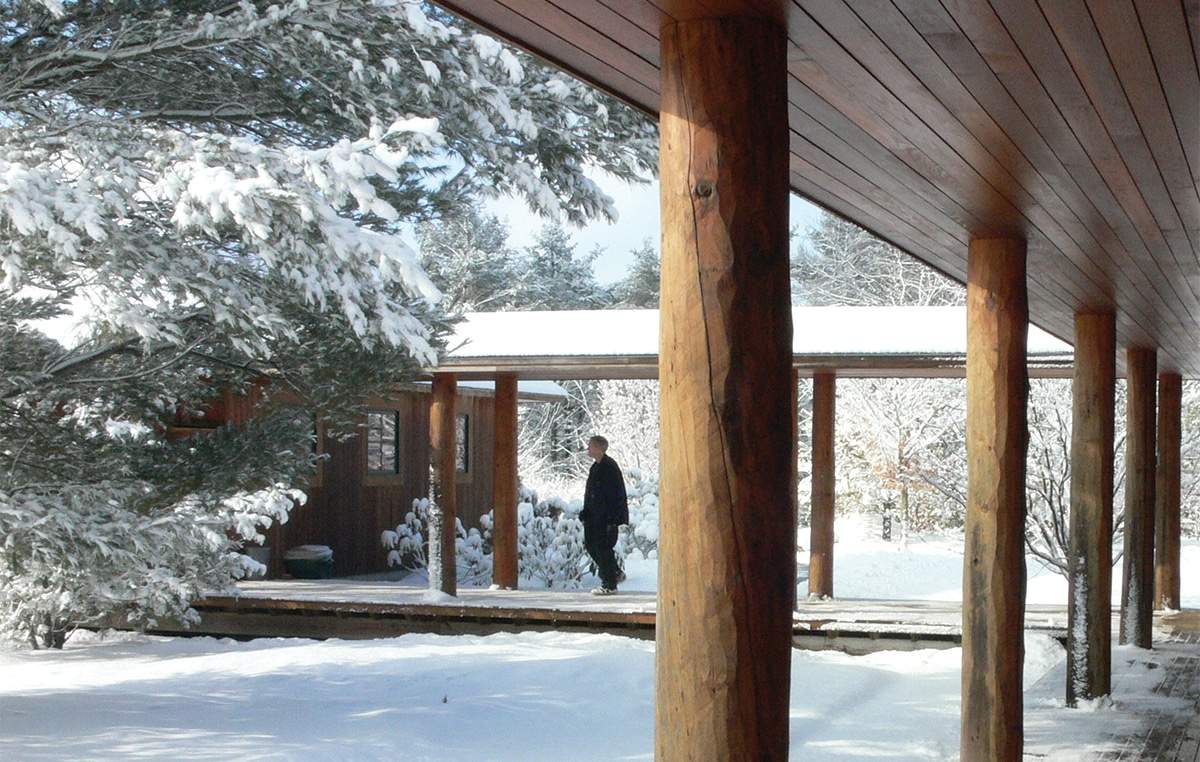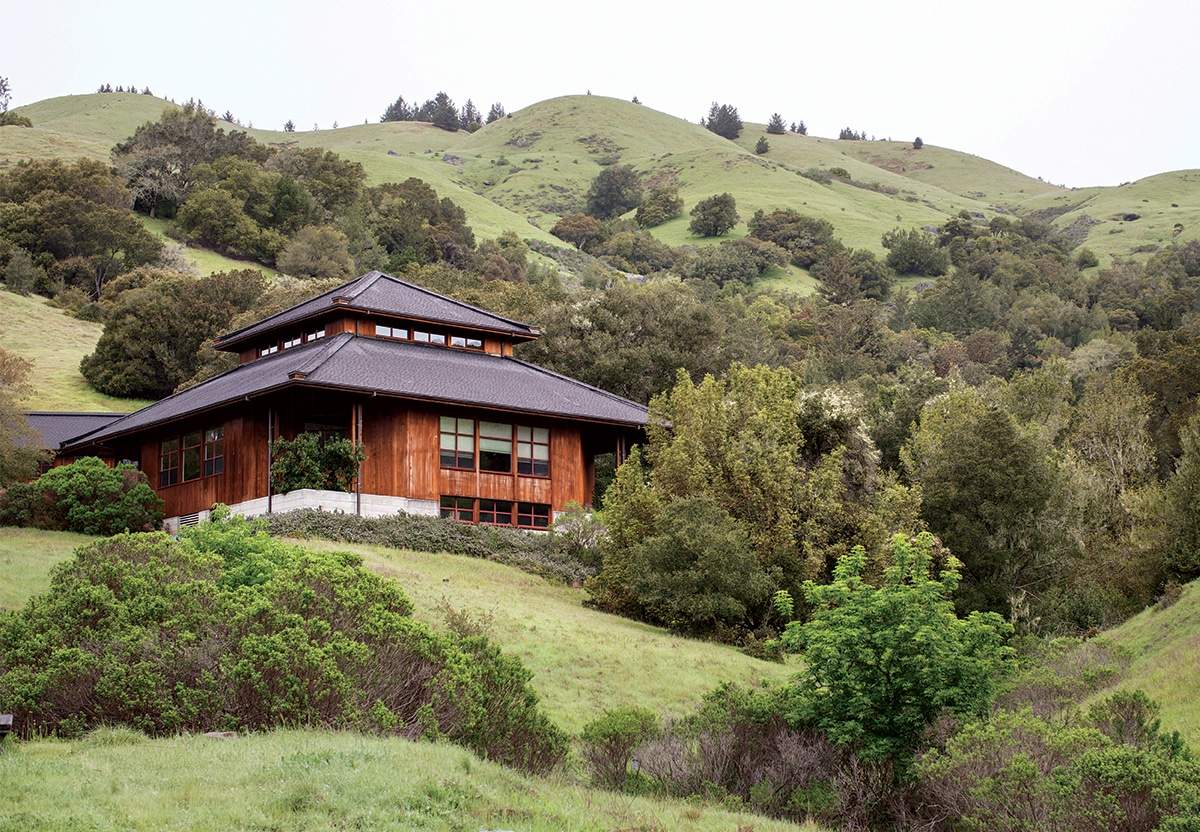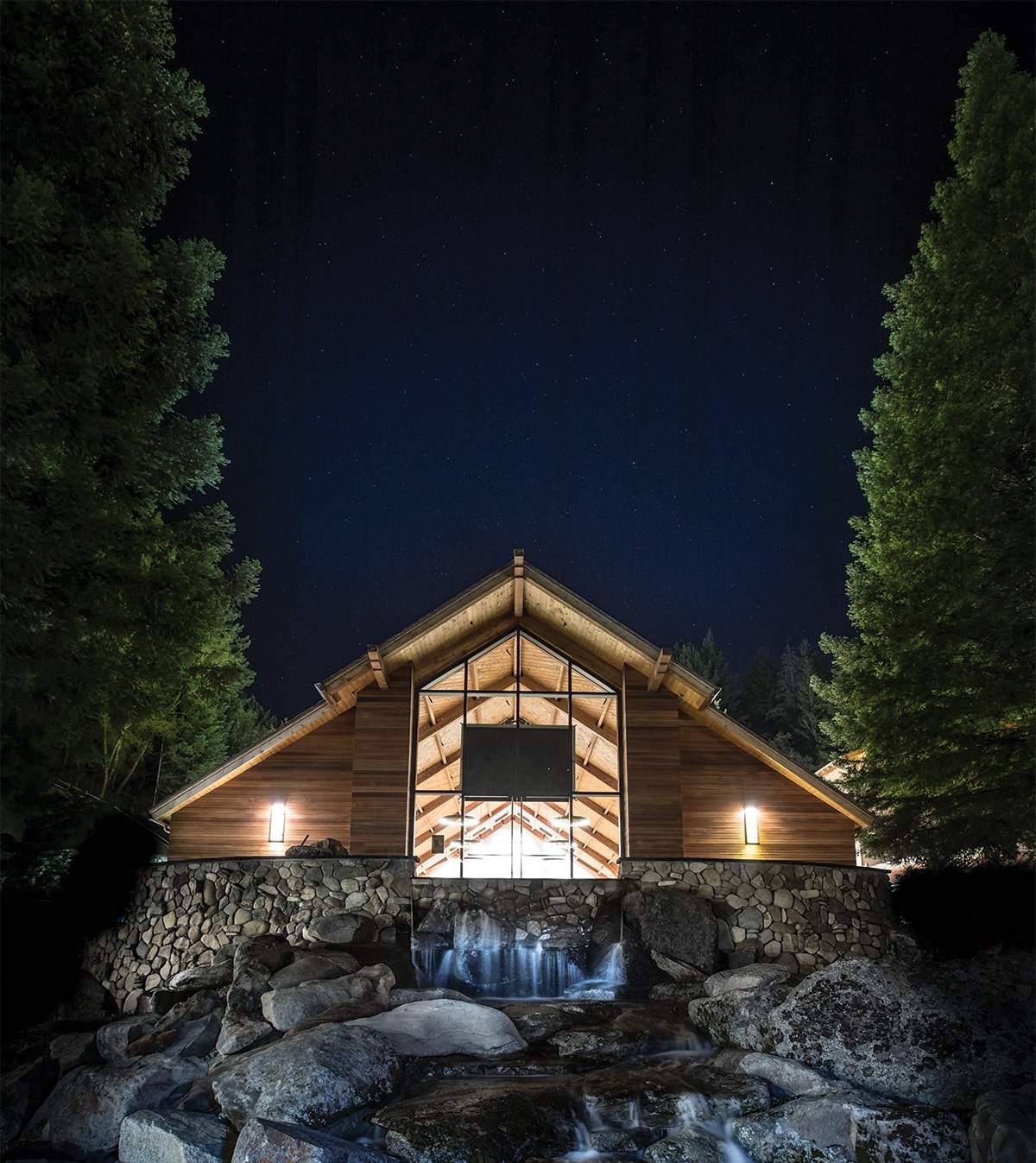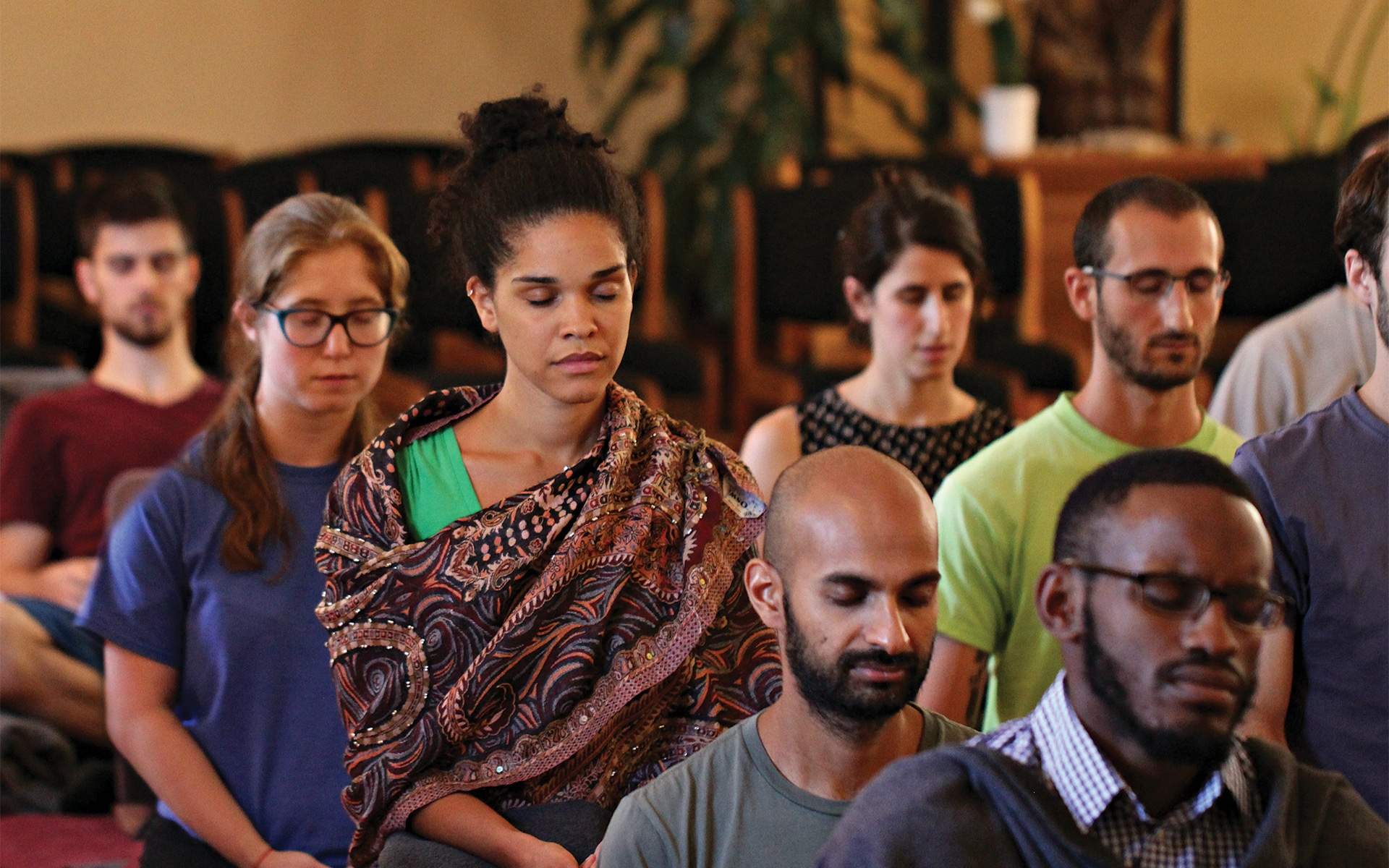From time to time we all need a break. We need space—space for silence and for renewal, space for listening and for learning. Even the most mindful among us need more than a 20-minute morning sit or a quick body scan between meetings. To loosen the demands of daily life, to give the thinking mind some breathing space, to hone our skills, or to deepen our daily practice sometimes requires not ordinary time but un-ordinary time—if not time in the mountains or in the desert or by the ocean, then at least time away.
“All of us desperately need time to quiet the mind and tend the heart. We need to re-regulate ourselves and to listen more deeply, to hear the wisdom that we carry, to let the love that we carry fill us in healthy ways, and to let our innate understanding grow,” says Jack Kornfield, teacher, author, and founder of Spirit Rock, a retreat center in northern California. “Going on retreat is in part a shedding—a releasing, an opening, a letting go—of all that we carry: the tensions, the worries, the busy-ness of mind and body. And that letting go allows a renewal of spirit and heart that is life changing. Taking time to listen in a deep way—going on retreat—is one of the most powerful things that you can do in your life.”
We offer, below, a sampling of five centers where time away is supported by experienced teachers, nourishing meals, natural beauty, and a commitment to diversity in every sense of the word. But each is different. Some embrace the word “retreat.” Others prefer words like “immersion” or “learning destination.” Some support silence. Others create connection. Some are on the West Coast. Others are on the East Coast. One is celebrating its 41st anniversary. Another just opened its doors. All practice presence—being in the moment, in the body, in the mind, and in the heart—and all welcome the busy, tired traveler.
1) Copper Beech Institute
West Hartford, Connecticut
copperbeechinstitute.org
For Brandon Nappi, founder and director of Connecticut’s Copper Beech Institute, mindfulness provides a common language with which people of all faiths and backgrounds can hold and examine some of the deepest questions humans can ask: What makes me happy? How can I live in a more peaceful way? How can I be more compassionate? What do I do with my pain? How do I forgive? How can I suffer less?
Nappi opened the institute in 2014 to create an affordable and regional center where people can learn the practices of mindfulness and contemplative meditation that have touched his own life so deeply.
Copper Beech shares a 50-acre site with a Catholic monastery and retreat center, though the two entities are entirely separate in all but their shared property. “We are never going to be mistaken for anything other than a Catholic campus, but when the guests settle in, I think they actually feel like it’s kind of cool—‘I’m in a living monastery,’” Nappi says. “We’re all in this together. We don’t have to practice in the same way, but it’s important to recognize and honor that we are each on a path.”
In that same spirit, the central approach of Copper Beech is inclusivity. Nappi sees it as a safe and welcoming space where contemplative teachers from different traditions can share their wisdom with an equally diverse community. Its offerings include half-day and daylong programs on Zen meditation, tai chi, Qigong, or Christian centering prayer. Nonetheless, most of the teachings at Copper Beech are based on the secular principles and practices of mindfulness. “We exist to help ease the suffering of the world and to help people become more grounded, compassionate, and loving. We try to do that as practically as we can. A lot of our visitors are learning mindfulness for the first time.”
At the end of the day—or the retreat—Nappi says, “We want people to feel that they’ve been embraced and loved, that the experience of being here was like receiving a warm hug from someone you hadn’t seen in a long time.”

AT A GLANCE
Founded
2014
What’s Offered
Retreats range in length from half-day to week-long
Accommodations
Single and double rooms
Program Calendar
Year-round
Fun Fact
Copper Beech features a labyrinth, an ancient symbol for wholeness, built on the site of an abandoned tennis court. At its center is a nine-foot-tall stone structure in the shape of an open circle (pictured left).
2) Insight Meditation Society
Barre, Massachusetts
dharma.org
When visitors to the Insight Meditation Society approach the retreat center, they’re hit with an unexpected image: a New England brick mansion, with its classical portico and white columns, and the ancient word “metta.”
In the Pali language the word means “loving-kindness” or “love.” The center’s founders salvaged the five letters of “metta” from signage for the property’s former occupants—Fathers of the Blessed Sacrament—and “metta” became the greeting for visitors to IMS’ tradition of insight meditation.
“We had a big debate about that,” says Sharon Salzberg, one of the center’s cofounders. That was forty-one years ago, when Salzberg, Jack Kornfield, and Joseph Goldstein were converting a defunct Catholic novitiate into a Buddhist meditation center. “Why should we have a word up there that no one understands?”
“But someone will call for directions, and whoever answers the phone will describe a large brick building with white pillars and this word—‘metta.’ And then they’ll ask what it means,” Salzberg says.
And so the training begins.
Unlike many retreat centers whose broad mission translates into an even broader agenda of activities, workshops, and amenities, IMS maintains a singular identity as a silent retreat center, located on a bucolic tract of land, steeped in the tradition of mindfulness and compassion training, and welcoming to all.
“At IMS you can make a friend of silence,” Salzberg says. “It’s very supportive, because teacher contact is always available.” While the teachers and the retreats topics vary—from the “Teen Retreat” and the “People of Color Retreat” to “Awareness, Insight, and Liberation” and “Emptiness: A Meditation & Study Retreat for Experienced Students”—the daily structure and core culture remain constant: group sittings, mindful movement, group Q & A sessions, and evening talks. “Even though you are silent, you don’t feel isolated,” Salzberg says. “You feel as if you are part of this interesting community.”
At its core, IMS seeks to equip the retreatant, the beginner and the experienced alike, with confidence in and clarity about the skills of mindfulness and compassion. For Salzberg, it’s that simple: “I want people to walk away thinking not just ‘Wow, that was an amazing experience! When can I go back?’ but also ‘What can I do every day to reawaken or reinforce the things I understood here?’”

AT A GLANCE
Founded
1975
What’s offered
Retreats range in length from weekend to three months
Accommodations
Single rooms
Program Calendar
Year-round
Fun Fact
When the founders were looking for a place to establish a meditation center, they visited Barre to visit the site for IMS and were struck by Barre’s town motto: “Tranquil and Alert.” How fitting!
3) Spirit Rock
Woodacre, California
spiritrock.org
As each visitor approaches Spirit Rock, the winding byways of West Marin County prompt a slowing of pace. Finally, a yellow sign warns the arriving traveler not to prepare for merging traffic or a no-passing zone but to “yield to the present.”
“It’s a place,” says founder Jack Kornfield, “that immediately invites a quality of slowing down and a presence of your own body, heart, and mind.”
That invitation is writ large on the landscape. The private valley where Spirit Rock’s 400 acres are nestled offers the retreatant a sweeping vista of arid land and blue skies. In a sense, the setting serves as a metaphor for and access to the vast spiritual terrain of the heart and mind. “Something happens at a place like Spirit Rock that allows the body and heart and mind to unwind and open,” says Kornfield.
Like many other retreat centers, including IMS, its East Coast forebear, Spirit Rock is dedicated to silence. Kornfield calls it “affectionate silence.” He says, “It’s really a sweet silence that contains and holds the retreat. In just a day or two, people start to experience the release of tension or fog.” And like IMS, the silence at Spirit Rock is structured around a daily schedule of meditation—sitting, walking, movement—and teachings, as well as Q & A sessions and opportunities for those on retreat to speak with teachers.
The trainings and practices offered at Spirit Rock are woven together with loving-kindness and compassion as central principles. As Kornfield says, “It is enormously inviting and transformative for all who practice here.”

AT A GLANCE
Founded
1987
What’s Offered
Retreats range in length from three days to two months
Accommodations
Single and double rooms
Program Calendar
Year-round
Fun Fact
Jack Kornfield estimates that since the center’s opening, more than 3.5 million meditation hours have been “logged.”
4) Hollyhock
Cortes Island, British Columbia
hollyhock.ca
Described variously as a New Age retreat center and a leadership learning center, Hollyhock, according to its mission, seeks “to inspire, nourish, and support people who are making the world better.” The center’s 35-year history spans its roots as “the Esalen of Canada” and its present form as Canada’s “lifelong learning center.” These days, Hollyhock draws upward of 2,000 visitors annually—some for unstructured personal getaways, others for high-energy leadership conferences, and most for workshops.
“Hollyhock has always been a place where inner skills are developed not to make yourself a better human but to affect the communities and the lives outside of yourself,” says Dana Bass Solomon, longtime CEO and board member of Hollyhock.
From April to November, the center’s calendar accommodates nonstop offerings on subjects of wellness and wisdom, leadership and arts, with classes ranging from “Somatic Yoga: Movement Solutions for Pain-Free Living” and “Money Mindfulness” to “Mushrooms: Wild & Mysterious” and “Joys of Ukulele.” The program is carefully curated to foster inner skills of self-understanding, listening, and learning to respond rather than react—all essential for making positive change in the world.
Hollyhock is situated on the southeastern tip of Cortes Island, part of the Discovery Islands archipelago between Vancouver Island and mainland British Columbia. Its location in the coastal temperate rainforest and just a hundred miles from the US border endow the place with what Solomon calls “a gentle feeling.” She adds, “We’re in this beautiful, soft location that is different because it is in Canada, which is, after all, a peaceful place, and there is something different that happens here.”
Solomon, who makes a point to read all of the comments in Hollyhock’s guest books, says that part of that “something different” can be captured by the words she invariably encounters: “beauty,” “enchantment,” “deep listening,” and “connection.”

AT A GLANCE
Founded
1982
What’s Offered
5- and 6-day workshops
Accommodations
Private rooms, dorm-style rooms, cabins, and campsites with a cedar bathhouse
Program Calendar
April to October
Fun Fact
The center’s biodynamic garden occupies an acre of land in the center of the campus and provides organic herbs and vegetables for meals and fresh flowers for common areas and bedrooms. During June the gardens produce over 100 heads of lettuce every week.

5) 1440 Multiversity
Scotts Valley, California
1440.org
The newcomer on the landscape of mindfulness-based destinations is 1440 Multiversity, which opened its doors this past Memorial Day weekend. Founder Scott Kriens looks to great teachers like Jack Kornfield and his Spirit Rock as forebears: “We are standing on the shoulders of those people and their work.” One need look no farther than straight up—up at the towering and ancient redwood trees that stud the campus—to absorb the lessons of heritage.
Like Dana Bass Solomon of Hollyhock, Kriens prefers using the words “learning destination” or “immersion” to “retreat.” But unlike Hollyhock, which can require a car, three ferry rides, some island hopping, and a full day to reach, the multiversity is located in the Santa Cruz Mountains near Silicon Valley. A 75-acre wooded site formerly occupied by a Bible college, the multiversity’s campus has been carefully and comprehensively designed to create for the visitor a feeling of ease and seamlessness, both social and physical. The slate surface of the refurbished—and now nondenominational—chapel stage flows into the patio outside, separated only by a glass door.
So, too, are people encouraged to flow from conversation to conversation, developing “teachable skills for better living.” One image that Kriens and his team nurtured during the years of planning for the center is that of a corporate executive, likely lodged in one of the suites, and a college student, perhaps occupying one of the outdoor sleeping pods, finding themselves side-by-side during the same evening session and striking up a conversation. It is, Kriens says, “a scenario we hope to curate.” In that sense, 1440 Multiversity offers a campus that is as conducive to contemplation and deep silence as it is to widening circles of relationship. With 11 classrooms, six or seven simultaneously running classes, and plans for an 800-seat auditorium, 1440 Multiversity offers itself as an upscale but relaxed hub of learning and connectivity.
“Life is about relationships,” Kriens says. “The work of 1440 Multiversity is to create avenues of learning—to encourage richer, deeper, more connected relationships. To do that requires one to pause and become present, right where you are.”

AT A GLANCE
Founded
2017
What’s Offered
Programs are typically 2 to 7 days long, though it varies
Accommodations
Double and single rooms and “Pods”—modern, Asian-style shared sleeping spaces with 8 twin beds
Program Calendar
Year-round
Fun Fact
1440 has an outdoor amphitheater situated between two stands of redwood trees and just above a creek. On one side are a few redwoods between 600 and 700 years old. On the other side is a redwood that the staff calls the “mother tree”: 14 feet across and 300 feet tall. “Our guess is it’s about 1,200 years old,” Scott Kriens says.





